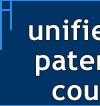Working Paper No. 01-2019
January 2019
The basic idea of this positioning paper is to map the landscape of our informational interests and to evaluate a range of recognised and putative rights and wrongs associated with modern ‘information societies’.
To a considerable extent, the rights and wrongs under consideration arise from the disruptive effects of new technologies—particularly ICTs, biotechnologies and, now, machine learning and AI. Specifically, it is the disruptive effect on informational expectations and understandings that provokes the questions that lie at the core of the project.
There are three primary contexts for this disruption.
First, modern developments in biotechnologies (particularly in human genetics), often in conjunction with developments in both ICTs and neuro-imaging, have disrupted traditional expectations concerning informational privacy and confidentiality and, in turn, provoked questions about the right to know and the right not to know. Such disruption and provocation is found in various domains, including: the family, reproduction, and children; blood, gametes, and organ donation; health research and biobank participation; clinical practice, and the marketing and consumption of (GM) food.
Secondly, with the development of ICTs, the phenomenon of ‘big data’, and the recent acceleration of machine learning and AI, there has been a major disruption in relation to traditional understandings of privacy while, at the same time, provoking the articulation of standards for the fair and proportionate processing of personal data.
Thirdly, we live in an era of hybrid warfare, lawfare, and fake news. The reliance of nation states on critical ICT infrastructures suggests a range of wrongs that might be recognised as a matter of international law; and, at the same time, reliance on ICTs to conduct international relations raises questions about the rights and wrongs of one nation state using these technologies to interfere with the domestic politics (and democratic processes) of another nation state.
>> Download here
____________________________






